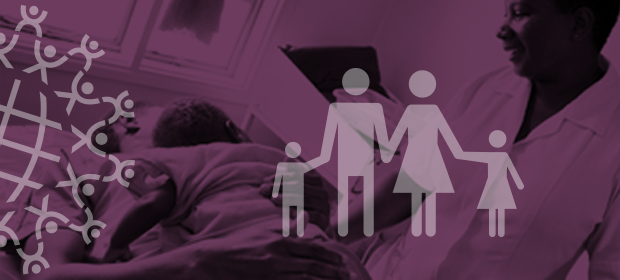Where We Work
See our interactive map


How CS4FP led to a sustainable youth leadership program in Guinea.
When Abou Maimouna Diallo was a teenager, he didn’t have much information about sex. He had never talked about it with his parents or learned about it in school. After his girlfriend became pregnant, he knew he had to educate himself.
“I decided to commit myself to the promotion of information on sexual and reproductive health and family planning,” he says. “To make sure I didn’t repeat the same mistakes, but also to help other young people.”So in 2016, he became a youth ambassador with IntraHealth International’s Civil Society for Family Planning project (CS4FP). The goal of the project, which began over a decade ago, was to help the government and civil society organizations work with young people to promote the benefits of family planning in the region. And sustainability was key.
Now, a year after the project officially ended in Guinea, youth ambassadors for family planning are thriving, and it looks like their approach to advocacy is here to stay.“I feel really proud of my work. The young ambassadors have become essential."
“We want young people to be in all regions and prefectures of the country,” Abou says. “We plan to mobilize and train 500 young people across the country who will become young ambassadors.”
The National Coalition of Civil Society Organizations in Family Planning in Guinea was born from CS4FP and supports 40 youth ambassadors in Guinea through their coalition. Consisting of 20 member organizations, the coalition partners with the Ministries of Health and Education to decentralize family planning and other health-related services. While their members span many regions of Guinea, their aim is to establish regional coalitions in the seven regions of the country.
They’re well on their way to achieving that goal. They support 17 clinics, ten of which are specifically focused on youth, and they focus on training coalition members on ethics, communication, and advocacy, as well as helping the government develop the most recent budgeted national action plan for family planning and curriculum on comprehensive sexual education.
“Guinea has, thanks to the coalition, a national program and a roadmap for comprehensive sexual education which constitutes support for all parliamentarians in the country as well as for the government and its technical and financial partners,” says Dr. Bintou Bamba, the president of the coalition.
They also focus on supporting and training young ambassadors, who talk to members of their community about the importance of family planning. The young ambassadors work with the National Coalition of Civil Society Organizations in Family Planning to organize campaigns (such as pregnancy-free Valentine’s Day and pregnancy-free summer vacation), network on digital platforms, and train other young ambassadors.
“As young ambassadors, we use door-to-door outreach, educational talks, and digital tools to inform and sensitize young people about sexual and reproductive health rights and family planning,” Abou says. “It is clear that many young people find themselves on social networks and are looking for information about family planning, which is why it’s important to talk about it there.”
The coalition’s efforts to remain sustainable after the end of the CS4FP project have not come without their challenges. On September 5, 2021, Guinea’s president was captured in a coup d’etat, which has stalled the integration and revision of the curriculum for comprehensive sexual education. Additionally, social factors still largely prohibit conversations about sex.
“People are reluctant to use contraceptive methods because of the weight of culture and religion, misinformation, or prejudice about the disadvantages of contraceptive products, and their high cost,” Abou says. “There is also a lack of user-friendly centers adapted to the needs of adolescents and young people in the country.”
But Abou and his fellow young ambassadors are chipping away at those cultural norms and providing more opportunities for conversations about family planning and sexual health. Alongside their door-to-door outreach and informational campaigns, they have been working with the Ministry of Health’s National Directorate of Family Health and Nutrition to help develop the Directorate’s political, programmatic, and strategic documents. And they are often invited to radio and TV programs to speak about their work.“I feel really proud of my work,” Abou says. “The young ambassadors have become essential. We’re contacted all day long by young people with questions about sexual and reproductive health and family planning. I have a sense of self-pride and I hope that in five years, family planning will be available and accessible everywhere and for everyone.”
CS4FP was led by IntraHealth International and funded by the William and Flora Hewlett Foundation and the Dutch Embassy.
Want to get more content like this delivered to your inbox? Sign up for our mailing list.
Get the latest updates from the blog and eNews




